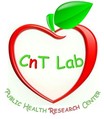
We, as parents, always debate how long we should let kids use digital device including watching a favorite TV show, playing Minecraft on Xbox, checking emails, and watching new videos on YouTube. Recently, the American Academy of Pediatrics (AAP) has updated the recommendations for daily digital media usage among children and adolescents.
· No screen time for 18 months and younger kids
· 1 hour for Preschoolers & Kindergarteners
· ≤ 2 hours for older children and adolescents.
Then, how can parents help kids to have healthy digital media habits? Parents are children's main role models, so it is critical for us, Mom and Dad, to have healthy digital media habits. I know, it is not easy to set down your smart phone, turn off TV, and shut down your laptops at night. Your child will tell if you spend all day to look into your smartphone to check one thing after another. AAP recommends that families designate "media-free times together, such as dinner or driving, as well as media-free locations at home, such as bedrooms.” AAP also recommends using the Family Media Plan tool, which can be found at healthychildren.org.
